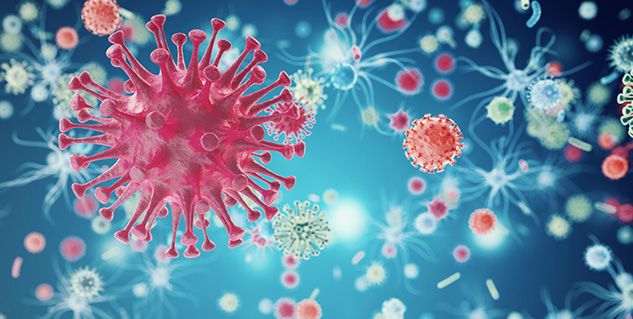
HIV Aids is one of diseases that could turn around the life of the person. The unfortunate part is that people have many misconceptions about HIV Infection because of which they neglect the HIV positive person. To mark awareness about this disease we at OnlyMyHealth are putting up a campaign to impart knowledge among people about HIV AIDS. As today is World AIDS Day, we are here to inform you about the effect of HIV on your body, its different types and factors that could lead the person to this disease. Let us know how this immune deficiency disease affects different functions.
Table of Content:-
What Effect HIV has on your body?
HIV is the main infection or virus that spreads throughout the body. AIDS is the disease which comes as a result of this infection; hence first this needs to be cleared to understand the effect. We spoke to Dr. Arun Mehta, General Surgeon in Ivory Hospital, Greater Noida, to know about effect of different types of HIV infection on the body. He told us that there are basically two types of HIV infection, Chronic and acute. HIV attacks your immune system, hence as a result it makes difficult for people to fight those infections.

Doctor said that this virus not only affects your immune cells at a particular level but also changes your CD4 cells into virus cells and spreads the infection in the body. Replication machinery needs to be destroyed in order to recover the patient from creating new copies of virus in the body. HIV AIDS affects the person when the CD4 cells count drop to less than 200 cells in a cluster in the blood.
How is HIV transmitted?
There are four basic methods to transmission of HIV virus in the body. It can spread through these modes-
- Blood
- Semen
- Vaginal fluid
- Breast milk
You may have attended some workshop at different levels of education about transmission modes of HIV. These are main modes of transmission but it can also spread through sharing of needles, indulging in sexual intercourse without protection. Other misconceptions should be debunked from people’s mind as soon as possible.
Also Read- Myths vs Facts About AIDS That You Should Know
Effect of Acute HIV on the body
Acute infection is the first stage of HIV infection. This gives out mild symptoms which might be taken for another disease. But you need to be careful about the effect it has on your body, acute HIV may take days or weeks after virus has occurred. The symptoms become evident as soon as the virus starts multiplying in the body. Here are some effects and symptoms include-
- Fever
- Headache
- Rash
- Swollen lymph nodes
- Fatigue
- Muscle pain

These symptoms may increase with the risk of HIV infection and copies made by the virus by turning CD4 cells into virus cells. When the immune system kicks in, CD4 cells rise once again, hence controlling these symptoms and building immunity in the body.
Effect of Chronic HIV
Chronic HIV is the second stage of infection in which the virus starts transmitting to other body parts through affecting the DNA of the person. It is an asymptomatic stage because of which the symptoms are not known or evident to the person. Virus does not multiply quickly in this stage but it gives a lasting effect on AIDS infection. Chronic HIV could be much worse in the condition if it does not get detected.
Without treatment, majority of cases suffering from HIV viral infection goes to their last stage in which they get AIDS. It is Aquired Immune Deficiency Syndrome which marks the stage of virus in the body that affects your RNA and has long term effects. It makes the intimate life of the person adverse and could lead to a number of other problems.
Also Read- World AIDS Day 2021: Know About These 7 Stages Of HIV AIDS Infection
Effect of AIDS on Body
AIDS affects your body in such a way that you do not know it until you get symptoms of it. If the count of CD4 cells go down to 500-1600 cells per cubic millimeter, then it could affect your health. However evident symptoms are only visible after severe AIDS infection that is when the count of body healthy body cells reaches below 200 cells/mm3. People vulnerable to this condition have common infections such as tuberculosis, toxoplasmosis and pneumonia.
Those people who have weak immune system get varied symptoms as infection and illness becomes prominent with them. This may include the risk of following diseases-
- Certain types of cancer
- Lymphoma
- Cervical cancer
Factors that affect HIV AIDS progression
Here are some factors that actually increase the tendency of a person to fall for a particular disease. This can be relieved with either viral suppression or because of antiviral therapy that helps to improve symptoms of this disease. Factors that may affect progression include-
- Ability of a person to achieve suppression by taking antiretroviral medications and virus suppressing medicines
- Being older may increase the tendency to fall for severe AIDS infection as the immune system becomes weaker in most cases.
- Health before treatment- it is important to know about the health before getting treated for disease such as tuberculosis, hepatitis C and other sexually transmitted diseases.
- Timing of diagnosis could particularly affect the person as they could longer be a part of the treatment as the period of diagnosis increases.
- Having poor lifestyle practices might also increase the tendency and adversity of this disease. Experiencing severe stress or problems could affect your health.
- Genetic history of people having HIV AIDS might increase the chances of you having it but it is less likely to happen so until blood is exchanged.
Picture Credits- pexels.com
Also watch this video
How we keep this article up to date:
We work with experts and keep a close eye on the latest in health and wellness. Whenever there is a new research or helpful information, we update our articles with accurate and useful advice.
Current Version
